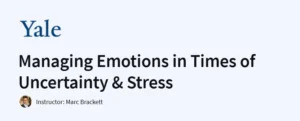What you will learn in A Law Student’s Toolkit Course
- Legal Terminology & Concepts: Familiarize yourself with fundamental legal terms and concepts essential for understanding legal arguments.
- Categorization in Law: Learn to categorize legal rules and frame policy questions using dichotomies and oppositions.
- Interdisciplinary Perspectives: Explore how law intersects with disciplines like economics, philosophy, and psychology.
- Legal Structures & Procedures: Understand the fundamental frameworks of legal analysis and procedure.
- Evidentiary Tools: Gain insights into concepts from the law of evidence to respond to questions and make compelling arguments.
Program Overview
Introduction to Legal Reasoning
⏳ 15 hours (3 weeks at 5 hours per week)
Explore the basics of legal reasoning and the critical tools used in law to analyze cases and issues.
Categorization and Classification in Law
⏳ 15 hours (3 weeks at 5 hours per week)
Learn how to classify legal rules and use dichotomies and oppositions to frame legal issues and solve problems.
Interdisciplinary Perspectives on Law
⏳ 15 hours (3 weeks at 5 hours per week)
Study how law interacts with other fields like economics, psychology, and philosophy, and how these perspectives enhance legal analysis.
Legal Structures and Procedures
⏳ 15 hours (3 weeks at 5 hours per week)
Understand the structures that make up legal systems and how legal procedures work to resolve disputes and enforce laws.
The Law of Evidence
⏳ 15 hours (3 weeks at 5 hours per week)
Dive into the law of evidence, including concepts like hearsay, admissibility, and how evidence is used in court.
Final Project
⏳ 15 hours (3 weeks at 5 hours per week)
Apply the learned skills to solve a practical legal problem, demonstrating your ability to use legal reasoning and evidence to form coherent arguments.
Get certificate
Job Outlook
Proficiency in Legal Analysis is valuable for roles such as:
Legal Researcher
Policy Analyst
Public Affairs Specialist
Academician in Law
Skills acquired in this course are applicable across sectors like:
Government agencies
Think tanks
International organizations
Educational institutions
Completing this course provides a foundation for those interested in further legal studies or entering professions that require strong analytical and critical thinking skills in law.
Explore More Learning Paths
Strengthen your legal foundation and explore the intersection of law, technology, and international policy. These related courses provide valuable perspectives for aspiring lawyers and legal professionals seeking to enhance their analytical and practical skills.
Related Courses
International Humanitarian Law in Theory and Practice Course — Learn the key principles governing armed conflicts and humanitarian protections under international law.
An Introduction to American Law Course — Gain insight into the U.S. legal system, exploring topics like constitutional law, contracts, and criminal justice.
Prompt Engineering for Law Specialization Course — Discover how AI and large language models are transforming legal research, writing, and case analysis.
Related Reading
What Is Knowledge Management? — Explore how legal professionals organize, manage, and apply vast bodies of information to make informed and strategic decisions.
Specification: A Law Student’s Toolkit Course
|
FAQs
- Learn the basics of legal reasoning and analysis.
- Build confidence before starting law school.
- Gain familiarity with essential legal vocabulary.
- Develop strategies for approaching legal problems.
- Perfect for pre-law students and undergraduates.
- Helpful for new law school entrants.
- Suitable for career-changers exploring law.
- Accessible to learners with no legal background.
- Learn structured legal reasoning.
- Practice reading and understanding case law.
- Get familiar with statutory interpretation.
- Explore methods of effective legal writing.
- Builds academic confidence before law school.
- Enhances problem-solving and logical thinking.
- Improves reading comprehension for complex texts.
- Prepares students for exams and class participation.
- Develops transferable critical thinking skills.
- Enhances academic and professional communication.
- Useful in careers requiring legal awareness.
- Provides a head start for advanced law studies.





